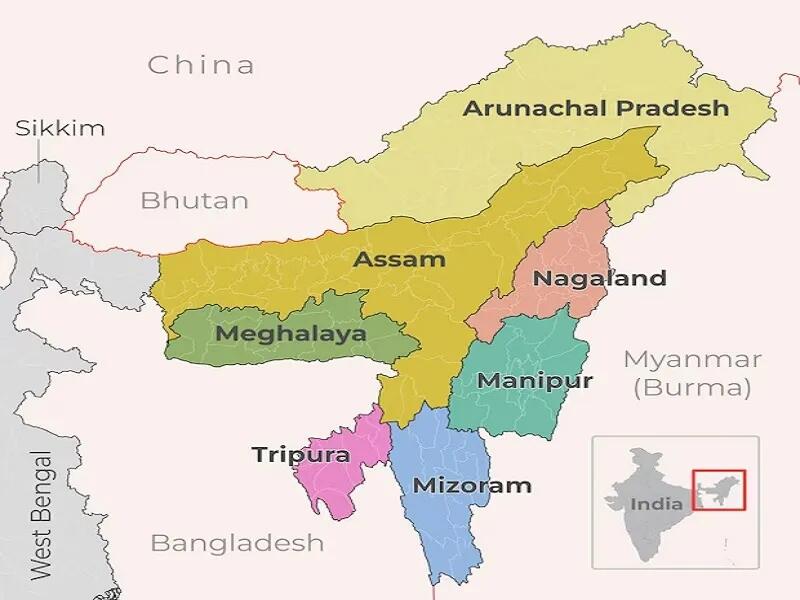Just when you thought it couldn't get more complicated and entangled, here comes the Bangladesh "problem". When Pakistan was created after the independence of India, two completely different Pakistan emerged. It didn't last long considering the complexity of running a divided country, but it did make sense because the two countries did share a common religion, if ethnically they were very different.
Now over 50 years after the partition in 1971, the two independent countries share a common enemy: India. Both are no match for the India army but together and with the support of China, the equation suddenly becomes much more difficult to solve.
I do not believe that Pakistan wants war, nor does India. But here, we are 100% in the realm of unintended consequences. If war happens, it will be become one side overplayed a seemingly winning hand. (Water?) And having the tacit support of Bangladesh could possibly embolden Pakistan. This is an extremely dangerous game of chicken between two nuclear armed powers. Add religion to the mix and the risk is compounded.
And this in a nutshell is the problem of mankind in the long run: During periods of quiet as the one following the second world war, deadwood of animosity accumulates in fracture areas which can be ethnic, religious or purely nationalistic. Now, the deadwood at the frontier of India and Pakistan is sky-high and it wouldn't take much to ignite. It only takes a few pyromaniacs and it is unfortunately something that neither country lacks under the disguise of religious fanaticism.
Authored by Andrew Korybko via substack,
Bangladesh’s increasing alignment with China and Pakistan could imperil India’s Great Power plans...
Bangladeshi Major General (retired) A.L.M. Fazlur Rahman, who serves as chair of the National Independent Commission of Inquiry investigating the 2009 Bangladesh Rifles massacre, posted on Facebook that Bangladesh should occupy India’s Northeastern States if India goes to war with Pakistan. He later explained that preparing for this scenario might deter India, which could in turn prevent Pakistan’s possible defeat, thus averting the existential threat that India would then pose to Bangladesh.
The incumbent government, which came to power after last summer’s US-backed regime change, distanced itself from his post but the damage to bilateral trust was done. Rahman’s words followed interim Bangladeshi leader Muhammad Yunus’ scandalous comments about India’s Northeastern States during a trip to China earlier this year. They were analyzed here at the time as a veiled threat to once again host Indian-designated terrorist-separatist groups if India doesn’t make concessions to Bangladesh.
This year’s two territorial controversies thus far were preceded by Yunus’ special assistant Mahfuj Alam sharing a provocative map on X in late December that made claims to surrounding Indian states, with these sequential developments altogether ringing alarm bells in Delhi about Dhaka’s intentions. Although each were “plausibly deniable” in that no official territorial claims were made, the trend is unmistakable, and it’s that the new Bangladeshi authorities are weaponizing fears of this scenario.
From their ultra-nationalist perspective, this is a pragmatic means to rebalance what they consider to be Bangladesh’s lopsided relations with much larger India, but it risks backfiring by heightening Delhi’s threat perceptions with all that entails. In the current context of India signaling that it might launch at least one surgical strike against Pakistan in retaliation for last month’s Pahalgam terrorist attack, Indian military planners can’t confidently rule out that Pakistan might coordinate its response with Bangladesh.
To make matters worse, Rahman also wrote in his two posts that Bangladesh “needs to start discussing a joint military system with China”, which lays claim to India’s Northeastern State of Arunachal Pradesh. Seeing as how there’s always the possibility that another Indo-Pak war could lead to China intervening on Pakistan’s side, which Indian military planners call the two-front war scenario, this latest twist could lead to a three-front war as the incumbent Bangladeshi government aligns closer with both against India.
India already felt that it was becoming encircled by China over the past decade, but this might soon evolve into a siege mentality if ties with Bangladesh continue to worsen due to its officials’ rhetoric. The new regional security system that’s taking shape as Bangladesh de facto incorporates itself into the Sino-Pak nexus could decisively shift the balance of power against India. In response, India might intensify the military dimension of its strategic partnership with the US, albeit more on the US’ terms than before.
India cherishes its strategic autonomy, which is why it’s thus far declined to participate in the US’ multilateral containment of China, but that could change if the US informally makes more military-strategic support of India depend on this.
Amidst its increasing encirclement that might soon evolve into a siege mentality as explained, India might feel that it has no choice but to concede to this so as to avoid being coerced into concessions by China, either scenario of which could imperil its Great Power plans.



No comments:
Post a Comment